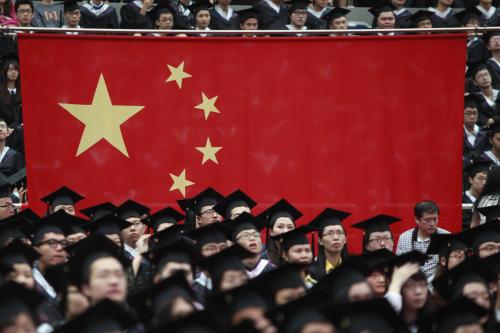

2:30 pm EDT - 4:00 pm EDT
Past Event
On April 19, the John L. Thornton China Center and the Center for Northeast Asian Policy Studies at Brookings hosted a discussion on the growing importance of internet and cybersecurity issues in U.S.-China relations.
Google’s announcement in January 2010 that its computer systems had been compromised in an attack believed to have originated in China, and the company’s subsequent announcement of a partial withdrawal from China’s search engine market, have brought increased public attention to the issues of internet censorship and cybersecurity in China. While these two issues are distinct, they both present new kinds of challenges to U.S. and Chinese policymakers.
A panel of experts discussed these issues and addressed the specific challenges faced by the two countries in dealing with them. Emily Parker, Arthur Ross fellow at the Asia Society, discussed censorship in China and the effects of the Internet on Chinese society. James Mulvenon, director of the Center for Intelligence Research and Analysis at Defense Group, Inc., discussed China’s capabilities for cyber warfare and the implications of cybersecurity issues for U.S.-China relations.
After the program, panelists took audience questions.


Yingyi Ma
April 4, 2024

Cameron F. Kerry
March 11, 2024

Jennifer Bouey
February 23, 2024